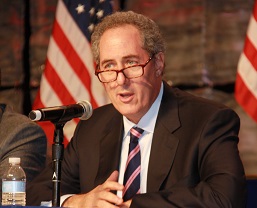 |
| United States Trade Representative Michael Froman |
SINGAPORE--In advance of this year's version of the U.S. list of problem countries in terms of intellectual property protection for patented drugs and other products, the pharma industry made what could be considered a last-ditch effort to limit the use of compulsory licenses.
The current list, known as the 301 Priority Watch List, includes the Asia-Pacific countries of China, India, Indonesia, Pakistan, Russia and Thailand. On the next level down, the "Watch List" includes several other nations in Asia, including Turkey and Vietnam.
The Pharmaceutical Research & Manufacturers of America (PhRMA) said in a written filing backed up in an oral presentation at a USTR hearing that it has CL problems with Russia, in addition to the other Asian countries of India, Indonesia. Thailand.
India's use of the compulsory license has gained most of the attention in recent years, but the group went to lengths to explain there also was a problem or a potential one in several other countries outside the Asia-Pacific region, including Ecuador and Peru.
The PhRMA testimony attempted to press on the USTR its interpretation of the intent of the compulsory license embodied in trade agreements. The group insisted the CL was meant to be used only in cases of health emergencies and even then, only as a last resort. That view is contradictory to the more liberal interpretation of other groups, including the World Health Organization.
The drugmakers' representative organization laid out several complaints about India's law, including that it is in place more for supporting the country's generics industry than for meeting a health need, much less an emergency need.
PhRMA noted that India was considering "as many as 20 patented medicines across a wide range of therapeutic areas." In addition, it said, the health ministry continues to impose CLs for cancer treatments.
In Indonesia, the group said, drug companies operating there were concerned that authorities have issued "use-type" CLs for nine branded drugs without involving stakeholders in the considerations. It noted that Indonesia also offers no opportunity to appeal its decisions. The industry said, however, it was willing to reach an agreement with Indonesia in particular on drugs for hepatitis B and HIV while protecting IP rights.
Thailand has failed to live up to past assurances "it would be judicious" in its CL use, the group said in its written submission. Instead, it said, Thailand continues to use "the threat of compulsory licenses to force companies into unfair price negotiations." And for the CLs that have been issued, royalties have not been paid to the IP owners, PhRMA said.
Russia has not issued any compulsory licenses yet, PhRMA said, but the government has been drafting policies for adoption into law that would consider cost as a consideration in deciding whether to issue a CL.
The written testimony reviewed India's history with the CL and said the nation's use of it has expanded since issuing the first one in 2012 into "tools of industrial policy."
If India expects compulsory licenses to deal with its healthcare needs, that was not a sustainable policy, the group said. It also accused the government of making false statements when it implied that CLs are widely used in developed and developing countries.
"At a minimum, India should ensure that the CL provisions comply with" the Trade-Related Aspects of Intellectual Property Rights agreement to which it is a signatory, PhRMA said.
The USTR has implied in the past that it has significant concerns about India's behavior in terms of protecting intellectual property rights. That could mean India is destined to be on the priority list once again when the next report is released in April.
- here's the PhRMA testimony
- and current USTR watch lists